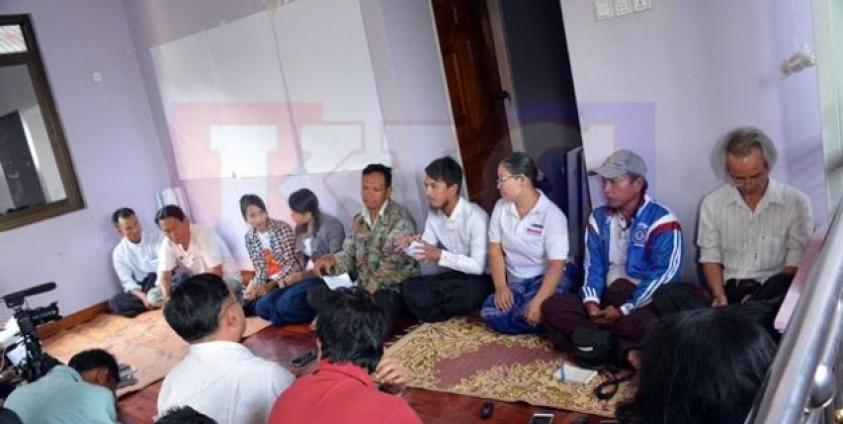It’s not quite gender parity, but it’s progress. Women are expected to make up nearly one-third of the southern region participants at the upcoming nationwide civil society organizations forum in Nay Pyi Taw, a massive shift from previous peace process events, which have largely lacked sizeable female representation.
Of the 103 southern region representatives signed up for the February 24-25 event, 27 are women, the majority of whom are from Kayin State, according to members of the participating CSOs.
Of the 34 delegates from Kayin State, 12 are women, while there are 9 women among Mon State’s 36 representatives, and 6 women among Tanintharyi Region’s 33 representatives, according to Saw Kyaw Zwar, a local CSO worker.
“In our CSOs forum, we were careful to ensure equal rights for women. We did not want to leave out women,” Saw Kyaw Zwar said.
Nang Tin Tin Hlaing, a member of Initiatives Network, suggested that perhaps more Karen women were participating in the process as they especially have suffered from armed conflict – including the loss of brothers, fathers and sons who were forced to work as porters or killed in the fighting.
She added that the inclusion of women in the upcoming forum is a major steppingstone.
“With several women joining in the forum more issues related to women’s rights can be raised. In the ethnic areas, where the fighting breaks out often, women have suffered most,” she said.
The Karen women representatives set to join the Nay Pyi Taw CSOs forum were elected as township leaders for six of their state’s seven townships – all except Myawady, according to the Karen State Civil Society Organizations Network.
Nan Sae Awar, a member of the Kayin State Joint Monitoring Committee (JMC-S), said that the Karen women should be able to participate as actively as the men in the forum. The Kayin JMC-S includes 15 committee members, two of whom are women. The state-level committee in Tanintharyi includes one female member.
While the government has committed to a 30 percent quota at nationwide ceasefire talks, it has consistently failed to meet that goal. While women make up 52 percent of the country’s population, they have largely been excluded from government peacemaking bodies. The Union Peacemaking Working Committee (UPWC), the main government negotiating team until 2015, included just two women among its 52 members, according to the Alliance for Gender Inclusion in the Peace Process. Of the 48 members on the Union Peace Dialogue Joint Committee (UPDJC), only three are women.
Translated by Aong Jaeneh
Edited by Laignee Barron








